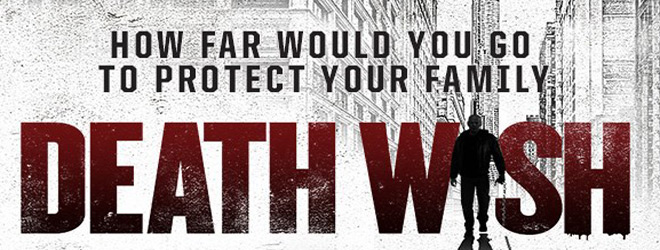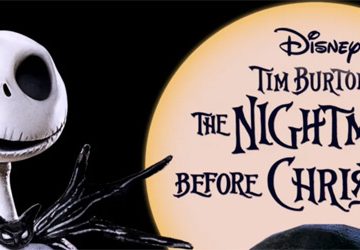The modern remake of the classic Charles Bronson led film Death Wish releases on Friday, March 2, 2018 thanks to MGM/Paramount Pictures, stars Bruce Willis (Die Hard series, Pulp Fiction 1994) in the lead role and, surprisingly, Horror director Eli Roth (Cabin Fever 2002, Hostel 2005) behind the camera.
For those viewers unfamiliar with the original, Death Wish is the story of Paul Kersey, a family man whose wife and daughter are brutally attacked by robbers. The wife is killed and the daughter severely injured but alive, and Kersey becomes frustrated with the lack of progress of the police to find the perpetrators and takes the law into his own hands. So how does the remake hold up? While it is impossible to escape comparisons to the Bronson film, the new Death Wish does a mostly solid job of delivering the emotional gut-punch of family tragedy and the deep satisfaction of proper vigilante justice.

There are a few changes to the story reflecting the 40-plus-years since the original. The setting has been moved from the Warriors-esque 1970’s New York to the current crime-ridden streets of Chicago. There is also the spectre of new technology and instant communication throughout the film, mostly working against Kersey – it is how the burglars find his house, and how both the police and criminals try to piece together the identity of the mysterious vigilante. Also, Kersey is a doctor in this one not an architect, a change that will be important in a later scene.
Kersey is a mild-mannered, restrained man. He is very tolerant of an aggressive parent at his daughter’s soccer game and does not fall into his vigilante persona right away, preferring to let the police do their work before snapping. Though the seeds of his actions are planted when he attends his wife’s funeral and her father tells (and shows) that the only way a man can protect what’s his is to do it himself. His emotional anchor during these times is his brother Frank, played by Vincent D’Onofrio (Daredevil Series, Full Metal Jacket 1987) who is a loving uncle to his daughter and the only level-headed person in his life as he becomes mired in his new persona.

The home invasion scene, while not as visceral as the original, is still effective because Kersey’s wife and daughter, Lucy and Jordan – played by Elizabeth Shue (Leaving Las Vegas 1995, Hollow Man 2000) and Camila Morrone (Bukowski 2013, My Own Private River 2013) – are well-established in their short time during the first act of the film. Their marriage is healthy, with Lucy just earning her doctorate and Jordan being accepted to a prestigious college. The family is happy and in the midst of the brightest times of their lives, making the invasion a seriously disturbing, even anger-inducing scene despite the more raw tone of the original.
Kersey himself has no formal gun-training, nor is he familiar with criminal or street life. As a result, he does not come off a smooth vigilante but a bumbling, middle-aged man way out of his depth and element; he even injures himself simply firing his gun on his first foray because he does not know how to hold it properly. However, once he gets a taste of vigilante justice and sees his actions becoming the talk of the city, he slips further into his alternate identity and his actions become more brazen, going from sneaking about at night to planned attacks in broad daylight. All the while, the backdrop displays talk radio debating whether or not this is a good or bad thing, even for the severe crime rates of Chicago. The ethical aspect is not fully explored but still serves its purpose in showing that even in the most desperate of times, people will still question what is right. The ‘Grim Reaper,’ as he is dubbed in the press, is never accepted by everyone and rightly remains a polarizing figure throughout.

Roth’s direction here is very good and his pedigree as a standout Horror director shows. This film has some serious violence, way more than the original but it’s not overdone. Things do not pick up on this front until Kersey starts finding the three men who committed the invasion, which is a good choice because it is quite shocking after a relatively average gun violence before it. It’s good to see Roth excel outside his familiar genre and hopefully he is able to show his talent in future non-Horror projects.
Overall, Death Wish mostly delivers what it needs to and Willis’ performance is better as the movie goes on; perhaps the emotional scenes toward the beginning could have been a little more effective, but he fits the vigilante persona of Kersey like a glove. The ending seems a bit rushed and tacked on, but the villains do not need too much backstory here. It is common to hate on Hollywood remakes but Death Wish is one of the better ones to come out, and is a well-written and well-directed ride that knows exactly where to take you. For these reasons, Crypticrock gives Death Wish 3.5 out of 5 stars.






No comment